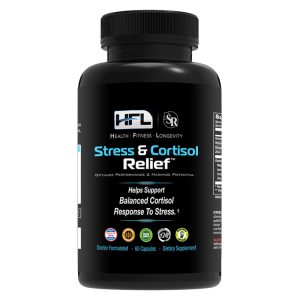Table of Contents
ToggleDepression, anxiety, and other mental health issues are common and can be life-altering. They can also make it difficult to work or go to school. There are many treatment options available, but they often require professional help. If you’re looking for information about mental health treatments, I will list five and tell you what they are and how they work.
1. Cognitive Behavioral Therapy
Cognitive behavioral therapy (CBT) is a type of psychotherapy that focuses on how our thoughts affect our behaviors and emotions. CBT can help you manage your problems by changing the way you think and behave.
A trained therapist will assist you in identifying negative thinking patterns causing anxiety or depression and teach effective responses.
2. Mindfulness
Mindfulness is the practice of being aware of the present moment. When you are in a mindful state, you focus on your breathing and thoughts as they come up—without judgment or self-criticism.
It’s like mindfulness meditation for everyday life: when we’re having an argument with our partner about something stupid like the weather (or anything else), we can be mindful by taking time to breathe deeply and notice how our bodies feel at that moment rather than getting caught up in what’s going on around us.
Mindfulness helps us focus on our thoughts and feelings without judgment, which allows us to let go of negative ones more easily. We’ll also remember more details from past experiences because they aren’t clouded by worry or stress; this helps with relationships too!
3. Meditation

Meditation is a great way to relax, focus, and deal with stress. It can also help you sleep better and improve your memory.
Meditation has been shown to reduce anxiety in people who suffer from chronic pain or depression. In one study published in the Journal of Anxiety Disorders, researchers found that meditation helped participants with anxiety disorders reduce their symptoms by 24 percent after six weeks of practice; this improvement was maintained at follow-up testing lasting for 8 weeks.
4. Dialectical Behavior Therapy
Dialectical Behavior Therapy (DBT) is a type of therapy that helps people deal with their emotions. It also teaches them how to regulate and manage their feelings, as well as learn how to express themselves.
DBT’s core focus is on mindfulness training, which involves focusing on the present moment to overcome distractions and anxiety. The goal of this practice is for you to become more aware of your thoughts, feelings, and bodily sensations so you can respond appropriately instead of acting impulsively or defensively when faced with challenging situations.
5. Interpersonal Therapy
Interpersonal therapy is the most common type of therapy used to treat depression and anxiety. It helps you understand your relationships, and role in them and make changes to how you interact with others.
Interpersonal therapists address self-esteem, confidence, and trust issues, helping clients feel more connected.
These are all effective ways to deal with mental health struggles.
It’s important to remember that mental health treatment doesn’t have to be expensive. There are many free and low-cost ways to get help, including:
- Cognitive behavioral therapy (CBT) is a type of therapy that aims to identify the thoughts and behaviors that cause you distress, then works with you on how best to change them. CBT is often used in combination with other therapies such as mindfulness or meditation so that it can be more effective at treating symptoms like anxiety or depression.
- Mindfulness training teaches individuals how they respond emotionally by identifying automatic thoughts—the things we tell ourselves when we’re anxious or stressed out—and challenging these automatic thoughts through meditation techniques like focusing on breathing slowly instead of racing through our heads or worrying about what might happen if something bad happens instead of taking action towards fixing it now!
Conclusion
I hope this article has given you some insight into how to improve your own mental health. If you’re struggling, I encourage you to reach out for help. It’s never too late to start feeling better!











